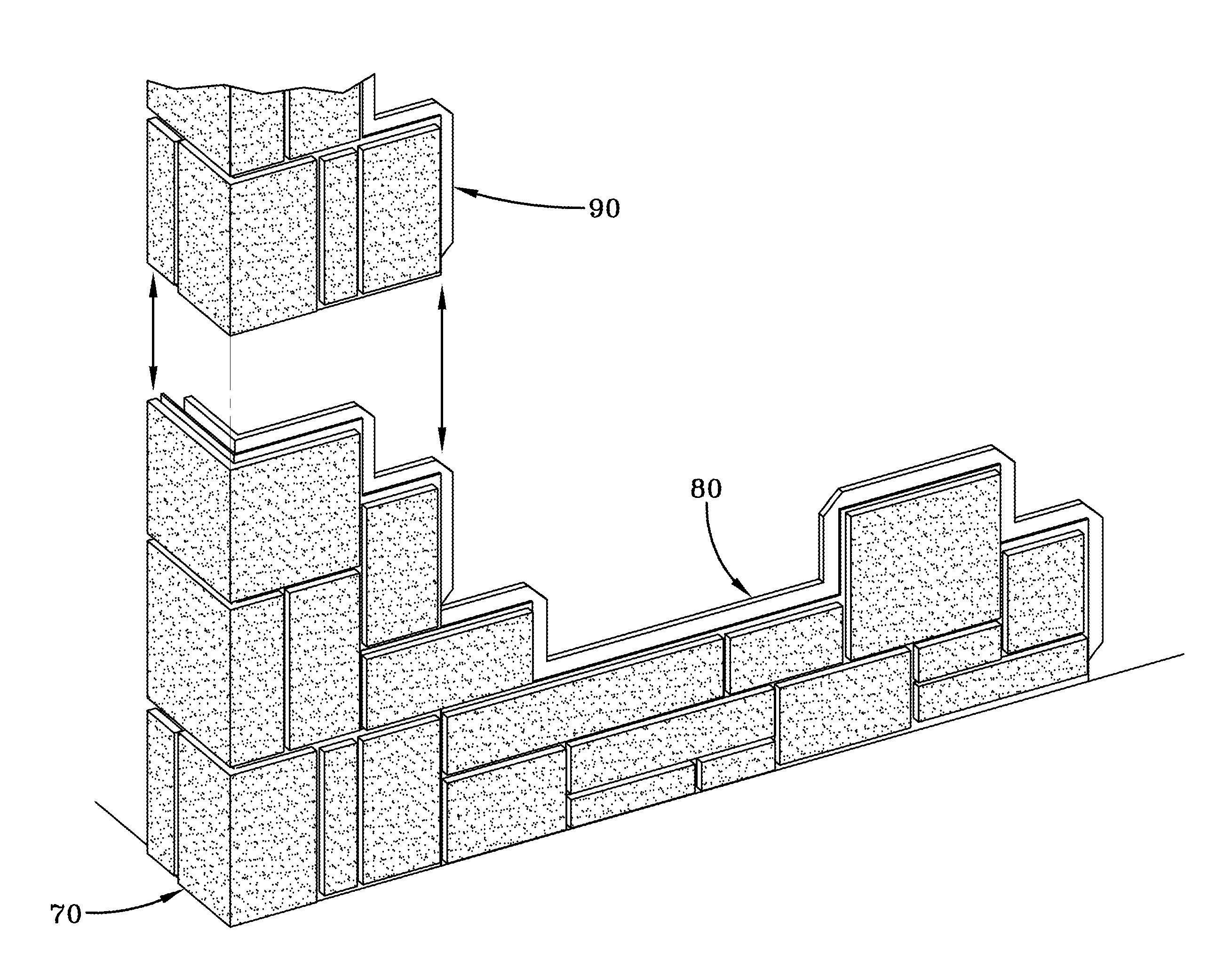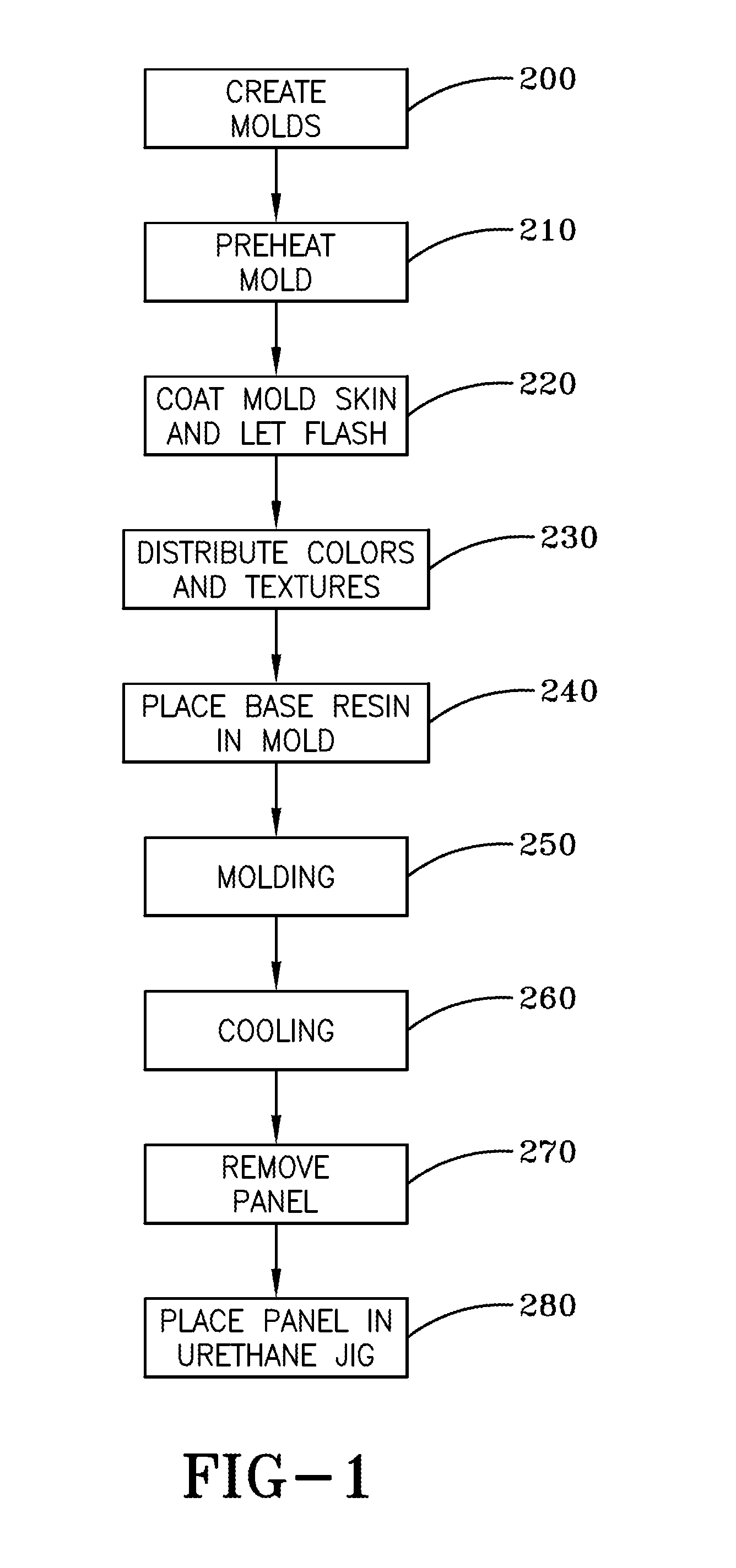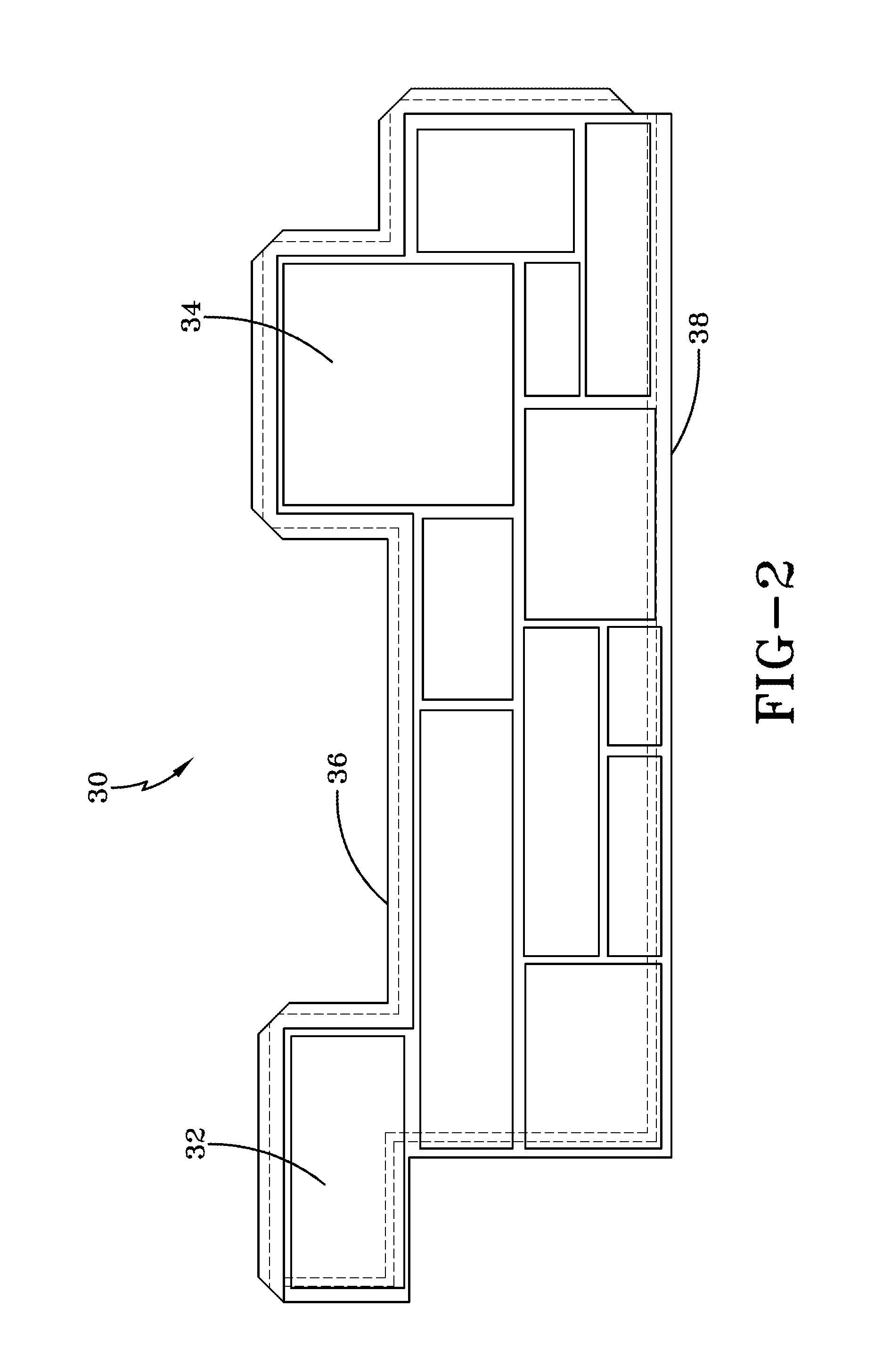Foaming of simulated stone structures
a technology of foaming and stone structures, applied in the field of parts, can solve the problems of inconvenient use, difficult and cumbersome manufacturing of stone products, and inability to meet the needs of construction, and achieve the effects of improving rigidity, improving sound insulation, and improving thermal insulation
- Summary
- Abstract
- Description
- Claims
- Application Information
AI Technical Summary
Benefits of technology
Problems solved by technology
Method used
Image
Examples
Embodiment Construction
)
[0105]Exemplary embodiments of the present invention include structures, compositions, and methods that may enhance the manufacturing, structure, appearance, assembly, installation, or function of synthetic building or construction products. Exemplary embodiments of the present invention include panels that may have contoured or textured surfaces adapted to simulate the appearances of other building products. For instance, exemplary embodiments of panels of the present invention may have contoured and textured surfaces that may simulate the appearances of conventional building or construction materials including, but not limited to, stone, bricks, masonry, concrete, stucco, wood, other similar or conventional building materials, and combinations of any of these materials.
[0106]Exemplary embodiments of the present invention may be used for various applications. For instance, exemplary embodiments of panels include, but are not limited to, wall panels, fence panels, siding panels, ot...
PUM
| Property | Measurement | Unit |
|---|---|---|
| temperatures | aaaaa | aaaaa |
| temperatures | aaaaa | aaaaa |
| temperatures | aaaaa | aaaaa |
Abstract
Description
Claims
Application Information
 Login to View More
Login to View More - R&D
- Intellectual Property
- Life Sciences
- Materials
- Tech Scout
- Unparalleled Data Quality
- Higher Quality Content
- 60% Fewer Hallucinations
Browse by: Latest US Patents, China's latest patents, Technical Efficacy Thesaurus, Application Domain, Technology Topic, Popular Technical Reports.
© 2025 PatSnap. All rights reserved.Legal|Privacy policy|Modern Slavery Act Transparency Statement|Sitemap|About US| Contact US: help@patsnap.com



